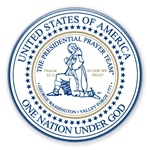
Unflattering as an adjective, insulting as a noun, imitation has fallen on particularly hard times. No one wants to be an imitation of a favorite songwriter, a fake impersonator of the grammy-award winning original. No restaurant proprietor wants to be reviewed as the “imitation” of a famed eatery; inherent in the classification is the notion of being a lesser version of the real thing. An idea is never lauded for being a good imitator of another, and imitation vanilla is rarely, if ever, invited to a cookbook. Originality is by far the more the accepted fashion of the day. And the pressure to be original—to be different than, better than, more than—is both constant and intense. It is the modern way of distinguishing oneself, whether applying for college or making a pithy tweet. From impressions to possessions to thoughts, being original seems to be everything.
The pressure may be subtle but it can be overwhelming. It is quite likely the reason why social media seems exhausting to me, why meeting someone with similar ideas can just as easily promote worry as it might a sense of camaraderie, or why I sometimes delay writing out of dread that it’s just all been said before. The pressure to be the inventor and not the imitator, the original and not the clone, the drive to make a new statement about oneself ad nauseam is both a strange and exhausting task.
I was thinking about this trend as I read some of the familiar, distinguishing, oft-quoted lines of Martin Luther King Jr. recently. In light of our need for incessantly original tweets and blog entries, it is interesting to note that King’s most trusted advisors were horrified when they heard him launch into his “I have a Dream” speech that fateful day in Washington. To them, this speech was played out. It was old and tired and not at all the new statement they were hoping to make for the Civil Rights Movement. He had given versions of this speech in other places and on other occasions, not the least of which a crowd of twenty-five thousand in Detroit. According to those who had helped him write the new speech the night before, they agreed they needed something far more original to make the greatest mark. Together they wrote a new speech that night, but on the day of the event, King set novelty aside for a less original dream.
Like his advisors, our modern allegiance to originality might make it difficult to imagine staring at a crowd of two hundred thousand, charged with a new and bold opportunity to make a statement heard by more of the United States than ever before, and deciding in a split moment not to say something new. Thankfully, Dr. King had the courage to believe that what we needed was not reinvention or novelty but, in fact, very old news. His acceptance speech for the Nobel Prize reflected a similar conviction:
“I have the audacity to believe that… what self-centered men have torn down men other-centered can build up. I still believe that one day mankind will bow before the altars of God and be crowned triumphant over war and bloodshed, and nonviolent redemptive goodwill will proclaim the rule of the land. ‘And the lion and the lamb shall lie down together and every man shall sit under his own vine and fig tree and none shall be afraid.’ I still believe that we shall overcome.”(1)
To those inclined to obey the unrelenting orders of repackaging, reinventing, and re-presenting oneself ever-anew, proclaiming an ancient hope, being a follower of an ancient way, indeed, imitating an unlikely rabbi from the first century, likely seems as boring and unattractive as it is strange. Who wants to be an imitator, let alone an imitator of an antiquated mind and crucified body?
It may well be one of the most countercultural stances the church takes and invites a watching world to join. The Christian is an imitation. She walks a curiously ancient path toward a Roman cross of torture; he stands, unoriginally, with a humiliated body that bore the sorrow and pain of crucifixion. The way of Christ is not new. But the invitation of this broken body is as paradoxical and healing in this world as the broken body itself. For more curious than the invitation to be a follower in a world looking for trailblazers is the invitation to follow one who, though equal to God, emptied himself, taking the form of a slave, humbling himself to the point of death on a humiliating cross. True imitations of this unordinary love are far more gripping then the next short-lived new thing.
Jill Carattini is managing editor of A Slice of Infinity at Ravi Zacharias International Ministries in Atlanta, Georgia.
(1) Martin Luther King, Jr.,
“Nobel Prize Acceptance Speech,” A Testament of Hope: The Essential Writings and Speeches of Martin Luther King Jr., 226.










